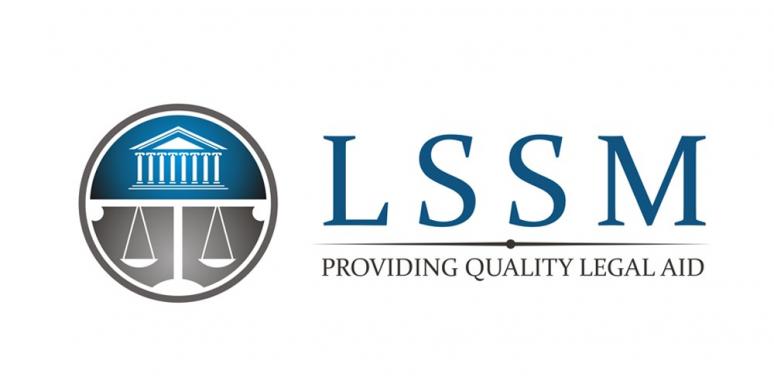Table of Contents
Wills and Estates with Missouri RSMo Citations

WILLS AND ESTATES IN MISSOURI
The Missouri Probate Code, or RSMo Chapters 472-475, governs the payment of debts and distributions of the deceased individual’s assets. This body of law is highly statutory and Chapters 472-475 is the best resource for any questions you may have.
After a person passes away (also known as the “decedent”), their assets and debts (that are not otherwise controlled by joint tenancy or by pay-on-death beneficiary instructions) pass directly into his/her estate. All assets of the decedent belong to the estate, subject to the aforementioned exceptions.
A relative died as a result of the disaster and we are not sure if she had a will. What should we do?
First establish whether the decedent had a will, as that fact will channel the probate process into either the [a] testate (with a will); or [b] intestate (without a will) process.
First, relatives should search for the will in any place where the decedent may have kept it. Often, the will is kept one of the following places:
- Safe or lockbox;
- Safety deposit box;
- In the decedent’s personal files;
- With a trusted friend or relative; or
- With the decedent’s attorney.
Under RSMo 473.043, any person in custody of the decedent’s will is obligated by law to deliver the will to the court. This can be done by [a] delivering the will to the probate division of the circuit court with jurisdiction over the estate; or [b] delivering the will to the probate division of the circuit court where the will was found. That court will make a copy and send the original to the circuit court with jurisdiction. Failure to deliver the will to the court may subject the person in possession of the will to contempt of court.
If the will is in a safe deposit box, a copy may be made. However, the original will must be delivered to the county clerk by the depository (i.e. bank), as they have custody of the will per RSMo 362.488.
We know that our relative does not have a will. What happens now?
Once determining that the decedent did not have a will, the relative should [a] collect and “freeze” the assets of the estate; and [b] see an attorney practicing probate law as soon as possible. If the intestate estate is probated, [c] an administrator will be appointed to pay the debts of the estate and [d] distribute remaining assets.
Collect and “Freeze” Decedent’s Assets
It is important that no one distribute or give away any assets of the estate before the court determines that the estate has sufficient funds to pay all of the decedent’s debts. A person who distributes or gives away the assets of the estate can be personally liable for the value of the assets to the estate (RSMo 473.550). Only the decedent’s bills necessary to maintain the real estate owned or rented by decedent (if any) should immediately be paid. These bills include the mortgage payments, homeowner’s \ renter’s insurance, electrical, natural gas, water, or other bills necessary to maintain the premises in its current condition. Other than those bills, no bills of the estate should be paid until an administrator has been appointed, the period to file claims against the estate passes, and the court determines the priority of the debts that should be paid.
Initial Meeting with an Attorney
The initial meeting with the attorney is essentially an information gathering session, so the relative is encouraged to bring as much information and as many documents as he/she deems helpful.
The attorney will conduct an interview with the relative to determine a number of issues and collect the following information:
- Whether the decedent had a will;
- Biographical information of the decedent, including the complete name, address, social security number, marital status, the spouse’s name (if applicable), date of birth, date of death, and location of death;
- Biographical information of the petitioning administrator including the complete name, address, date of birth, social security number, date of birth, contact information (phone numbers and e-mail address), and relationship to the decedent;
- Biographical information on all known heirs at law including the complete name, address, date of birth, social security number, date of birth, contact information (phone numbers and e-mail address), and relationship to the decedent;
- Information regarding the assets of the decedent, including recent bank statements, investment portfolios, insurance policies, appraisals, abstracts, promissory notes, contracts, and other documents reflecting the decedent’s ownership interest in the asset;
- Information regarding the debts of the decedent, including bills, payment schedules, promissory notes, contracts, debtor contact information and other documents reflecting the decedent’s debts.
- This will provide the attorney with enough information to start the probate procedure. If probate is necessary, the attorney will attend to the following items necessary to open an intestate estate:
- Filing fee of $300;
- Filing Information Sheet;
- Application for Letters of Administration;
- Copy of death certificate;
- Corporate surety bond in the minimum amount of $10,000 or in the amount of the personal property;
- Complete names, address and relationship of all heirs (family tree may be requested);
- Indication as to whether independent or supervised administration is requested;
- If independent is requested, need consent from all the heirs and a statement by the proposed Personal Representative and Attorney that the estate can be closed in one year; otherwise, default to supervised Renunciations of all persons entitled to act as Personal Representative or request that the application be set for hearing;
- A designation of resident agent by non-resident Personal Representative and acceptance of the designated agent.
The attorney must also publish the Notice to Creditors in a local periodical, typically a newspaper, once a week for two successive weeks. Attorneys must further check with the MO HealthNet Estate Recovery program to determine whether any Medicaid liens exist against the decedent’s estate and provide notice to all known creditors.
Duties of the Administrator
After the administrator is appointed by the court, the attorney should prepare a letter to the administrator detailing the administrator’s duties and how the goals of the estate are best accomplished. The administrator will have essentially the same powers over the decedent’s assets as the decedent did during his/her lifetime, but without the range of discretion. The administrator must act for the benefit of the heirs at law and owes the estate a duty of good faith, care, and fair dealing. If the court determines that the administrator self-dealt or acted in bad faith, the administrator may be removed from his/her position and be liable to the estate for any damages it may have incurred.
Distribution of Assets
If the debts of the estate are paid in full and assets are still owned by the estate, the remaining assets are distributed amongst the “heirs at law” according to RSMo 474.010-474.290.
A relative died as a result of the disaster and we know that she had a will. What happens now?
If you determine that the decedent had a will and you are unable to find the original will, refer to the first question above.
Typically, only a properly executed will is enforceable in court. If you are unable to locate the original will, but you have an executed copy, a relative or attorney may petition the court to accept the exact copy of the will in the absence of the original. The relative or attorney thereof will have the burden of proving to the court that [a] the original will was destroyed, and [b] the copy of the will is identical to the executed original. If the court finds as such, the court may open the estate using an exact copy of the will, rather than the executed original.
Regardless of whether the relative is in possession of the original will or an executed copy, the relative should [a] collect and “freeze” the assets of the estate; and [b] deliver the will to an attorney practicing probate law as soon as possible. If the testate estate is probated, [c] an executor will be appointed to pay the debts of the estate and [d] distribute remaining assets
Collect and “Freeze” Decedent’s Assets
It is important that no one distribute or give away any assets of the estate before the court determines that the estate has sufficient funds to pay all of the debts. A person who distributes or gives away the assets of the estate can be personally liable for the value of the assets to the estate. Only the decedent’s bills necessary to maintain the real estate owned or rented by decedent (if any) should be paid. These bills include the mortgage payment, homeowner’s \ renter’s insurance, electrical, natural gas, water, or other bills necessary to maintain the premises in its current condition. Other than those bills, no bills of the estate should be paid until after an executor has been appointed, the period to file claims against the estate passes, and the court determines the priority of the debts that should be paid.
Initial Meeting with an Attorney
This initial meeting with the attorney is essentially an information gathering session, so the relative is encouraged to bring as much information and as many documents as he/she deems helpful.
The attorney will conduct an interview with the relative to determine a number of issues and collect the following information:
- The location of the decedent’s will;
- Biographical information of the decedent, including the complete name, address, social security number, marital status, date of birth, date of death, and location of death;
- Biographical information of the petitioning administrator including the complete name, address, date of birth, social security number, date of birth, contact information (phone numbers and e-mail address), and relationship to the decedent;
- Biographical information on all known heirs at law including the complete name, address, date of birth, social security number, date of birth, contact information (phone numbers and e-mail address), and relationship to the decedent;
- Information regarding the assets of the decedent, including recent bank statements, investment portfolios, insurance policies, appraisals, abstracts, promissory notes, contracts, and other documents reflecting the decedent’s ownership interest in the asset;
- Information regarding the debts of the decedent, including bills, payment schedules, promissory notes, contracts, and other documents reflecting the decedent’s debts.
- This will provide the attorney with enough information to start the probate procedure. If probate is necessary, then the attorney will then attend to the following items necessary to open a testate estate:
- Filing fee in the amount of $300;
- Copy of death certificate;
- If Personal Representative named in the will is applying and bond is waived in the will, then no bond will be required; if not, $10,000 minimum corporate surety bond is required;
- Filing Information Sheet
- Application for Letters Testamentary listing complete names, addresses and relationship of all the heirs and devisees with explanation if names do not match the will;
- Indication as to whether independent or supervised administration is requested;
- Consents to independent administration from devisees if not allowed in the will;
- A statement from the Personal Representative and Attorney that the estate will be closed in one year, if independent administration is requested;
- Refusal to qualify of named Personal Representative if they are refusing to serve;
- Renunciations of persons entitled to act as Personal Representative, or request that the Application for Letters be set for hearing if applicant is not the Personal Representative named in will;
- A designation of resident agent by non-resident Personal Representative and acceptance of the designated agent;
- Application for Probate of Will;
- Testimony of witnesses to will if not self-proving;
- Provide names and addresses of witnesses if a Commission is required to prove the will.
The attorney must also publish the Notice to Creditors in a local periodical, typically a newspaper, once a week for two successive weeks. Attorneys must further check with the MO HealthNet Estate Recovery program to determine whether any Medicaid liens exist against the decedent’s estate and provide notice to all known creditors.
Duties of the Executor
After the executor is appointed by the court, the attorney should prepare a letter to the executor detailing the executor’s duties and how the goals of the estate are best accomplished. The executor will have essentially the same powers over the decedent’s assets as the decedent did during his/her lifetime, but must act for the benefit of the beneficiaries of the will and owes the beneficiaries the duties of good faith, care, and fair dealing. The executor must also act in accordance with the intentions of the will. If the court determines that the executor self-dealt, acted in bad faith, or acted contrary to the intentions of the will, the executor may be removed from his/her position and be liable to the estate for any damages it may have incurred.
Distribution of the Estate
If the debts of the estate are paid in full and assets are still owned by the estate, the remaining assets are distributed amongst the beneficiaries of the will according to the distribution scheme enumerated in the will.
Published - 2016 by LSSM for Missouri Statewide Disaster Manual.

